Young people are navigating an increasingly divided world, with the hostile rhetoric and fearmongering spread on social media sometimes casting a dark shadow over college life.
Further education colleges are renowned for welcoming students from all backgrounds; their corridors and classrooms are often more diverse than the towns and cities they’re based in.
But the divisive forces they are up against risk conflict on campus and costly legal battles. Experts argue that traditional methods of managing cohesion and inclusion are no longer good enough.
Riots in town centres across the country, fuelled by false claims that the perpetrator of the murders of three young girls in Southport was a Muslim asylum seeker, brought those tensions into sharp focus last summer and sparked panic amongst many college ESOL learners. Around 147 children were among the 1,590 arrested during the unrest.
A judge-led inquiry, The Southport Inquiry, began its first live hearings in Liverpool last week.
In Middlesbrough, mobs of hooligans set fire to cars and smashed windows.
Middlesbrough College staff were on holiday at the time, but that did not stop them coming into town the next day, brooms in hands, from homes across the region to lead a clean-up effort (see main picture).
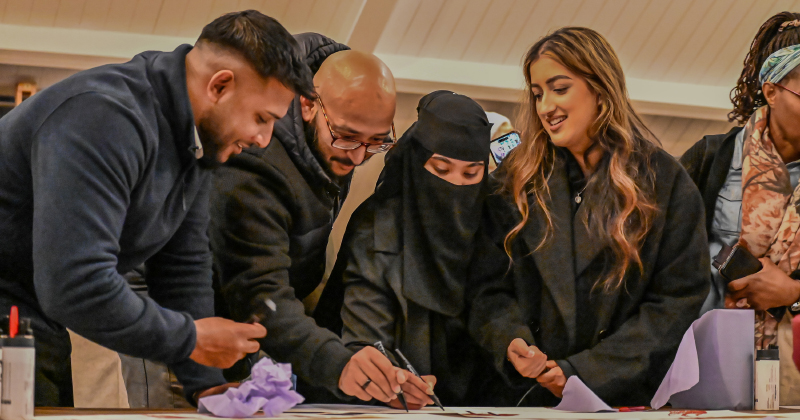
“That’s us. That’s what we do,” said Aimey Adamson, Middlesbrough College’s vice principal for students and communications.
A significant proportion of students at the college’s town centre campus are ESOL learners who the college are “supporting to make a new life”.
“Our work was around showing them that we stand with you – it’s really important that we’re creating a sense of community for them,” says Adamson.
Similarly, after the riots ripped through Sunderland, its college staff sprung into action against the divisive rhetoric. Drama staff members Matt Waller and Jonathan Wharton penned a poem, ‘Open Yer Eyes’, and its creative arts students collaborated on an immersive series of artworks celebrating the city’s rich cultural tapestry.
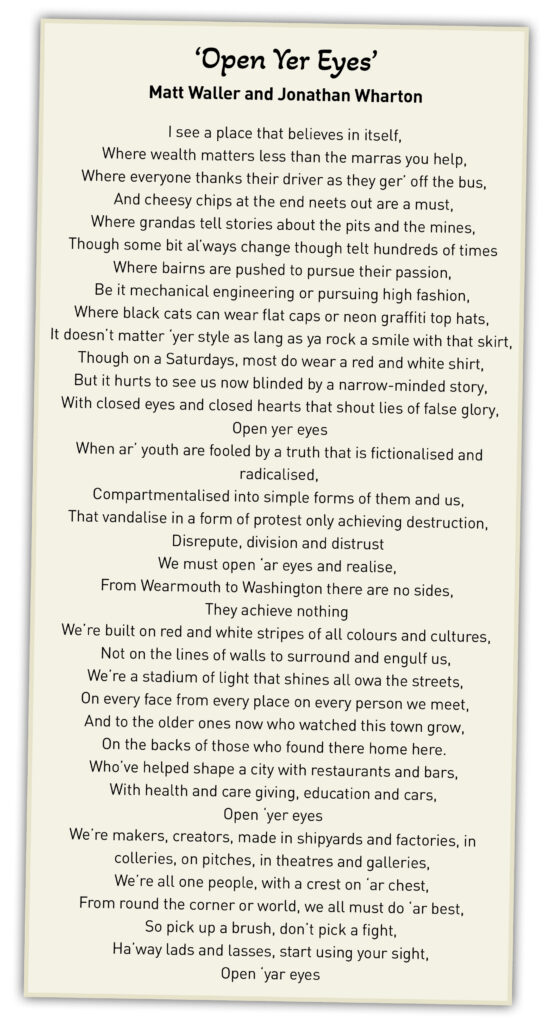
And crucially, a conference for leaders was held specifically to discuss colleges’ role in community cohesion; part of the FE Commissioner’s ‘One More Thing’ series, and hosted by college group Education Partnership North East.
The group said at the time that “in the wake of the 2024 riots and an era of increasing inequality and economic challenges, building cohesive communities has never been more important”.
Professor Ted Cantle, advisor to Belong – The Cohesion and Integration Network, who spoke at the conference, praised Education Partnership North East for “grasping the nettle”.
Sunderland had, he said, engaged its students in discussion “in a constructive way” so “genuine reflection and learning took place”.
A debate around digital safety, for example, helped them to “understand how algorithms work to build on their emotions and develop into groupthink”.
But he warned that “all too often, what takes place is ignored” by colleges.
“There’s this pretence that this hasn’t happened, it’s put in the too-difficult box which compounds the problem. It means the stereotypes are never challenged, the myths never disconfirmed. There’s just no opportunity for those young people to come to terms with the change that is taking place in their communities.”
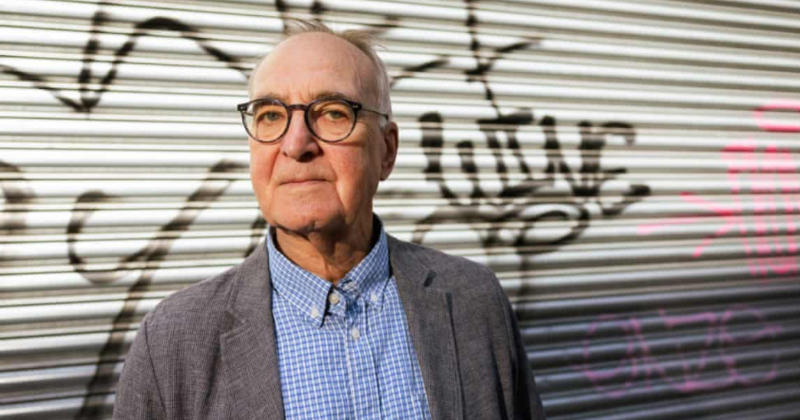
A ‘low level’ shift
While last summer’s race riots reflect the most extreme end of the political divide, Lisa Humphries, chair of the National Association for Managers of Student Services (NAMSS), believes colleges are seeing a “low-level shifting of divisive attitudes” and “disengagement with society” from their learners.
She believes the divisive rhetoric of political players, including Donald Trump and Elon Musk, means “young people are seeing people saying whatever they like with no accountability”, which is leading to an “increase in division” and a lack of “common moral ground”.
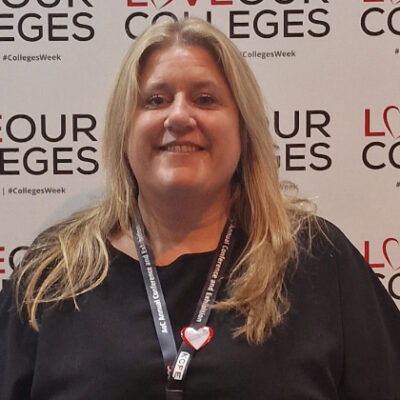
In a 2024 NAMSS survey of 62 colleges, over two-thirds of respondents felt that student disaffection with wider society had worsened in the last year, with social media identified as the top cause.
Colleges are seeing “regular classroom conversations about immigrants”, with legal immigrants being viewed similarly by many students as those who arrived illegally”, she said.
And FE colleges are on the front foot in teaching learners how to identify and call out extremism; ‘radicalisation’ was referenced in 18 out of 56 Ofsted reports published so far this year, with only five colleges criticised for not doing enough and 13 praised for their teaching in this regard.
In April at Southport College (just a five-minute drive from where the knife attack on young girls took place last July), adults and apprentices were found to “articulate well their understanding of fundamental British values and know how to keep themselves safe from the threats of radicalisation and extremism”.
Feeling unsafe
Feeling unsafe in their communities was flagged as one of the “biggest concerns” of young people in the last Youth Voice Census by Youth Employment UK.
Last year, the census found that only 62 per cent of young people in education felt safe in their learning environment, a nine percentage point decrease from the year before.
Fears around personal safety were felt most by young women, those eligible for free school meals and transgender respondents.
The preliminary findings of its 2025 census also reflect growing anxieties around “feeling part of a community, that sense of social cohesion,” said Youth Employment UK deputy CEO Lauren Mistry. “For lots of young people, the social divide is really heightened.”
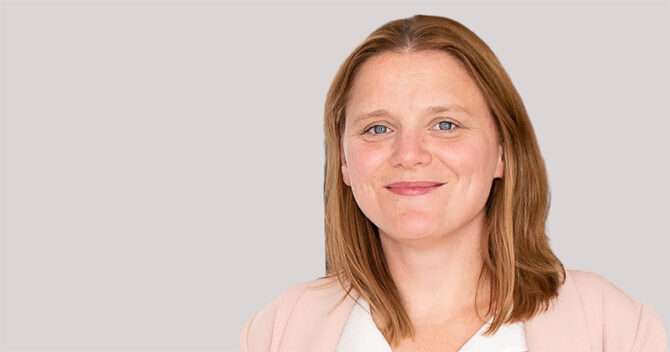
Discrimination all round
Anecdotally, Youth Employment UK has also noticed a rise in derogatory and racist comments on its social media posts and in the “general commentary” this year, said Mistry.
For the last three years, the census has found more young people in education reporting high rates of discrimination.
Over a third of young people (35 per cent) in last year’s census scored discrimination as one of their top three concerns for the country.
The biggest factor for NEET white boys is that they feel they cannot access work or training because of their colour and gender.
Every group feels discriminated against, which is a real worry
“They feel like they’re getting less and feel more and more disconnected from a system that’s going to work for them and support them,” said Mistry.
“Every group, no matter their race, gender or age, feels discriminated against, which is a real worry. Particularly around social media, that sense of divide is really high.”
One of the trends that colleges have expressed concern about is a perceived rise in misogyny among young men.
But the real picture may be more nuanced. Natasha Eeles, CEO of Bold Voices, which promotes critical awareness of gender inequality, believes that although the debate around misogyny now is “very emotive and heightened”, she is unsure whether misogyny is really worsening among young males or whether “we didn’t have the language or even the recognition of it, even five years ago”.
And Humphries is concerned about “extreme feminism” in colleges as well as misogyny.
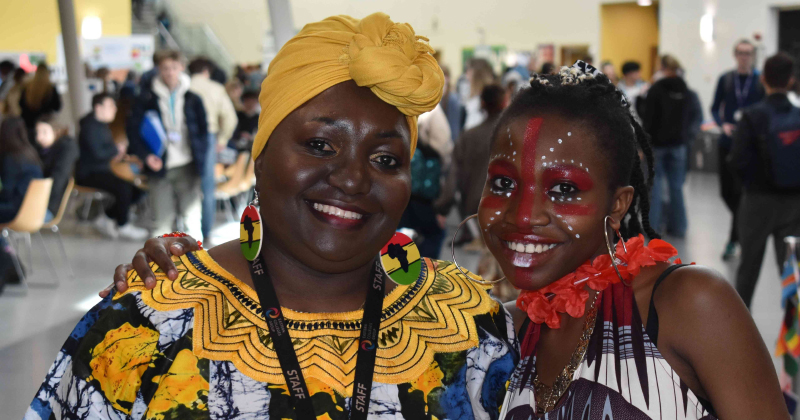
Culture days ‘don’t work’
Events that aim to lessen the sense of discrimination by celebrating diverse cultures have become commonplace fixtures on college calendars.
This year, such events took place at One Sixth Form College (ONE), Newham College, New College Swindon, Runshaw College and Middlesbrough College among others.
Adamson said that at Middlesbrough College’s recent Festival of Culture,“to see our Muslim female students in their finery dancing in public was just beautiful”.
And an Iftar the college held was particularly appreciated by 16-18 ESOL learners, around half of whom were classed as unaccompanied minors, in foster care or supported living. “It was really important for them to have that sense of community,” she said.
But such events are not always embraced by the whole community.
Runshaw was slammed by some parents for ‘totally ignoring’ VE celebrations that took place on the same day.
And there are other cultural sensitivities to bear in mind. BMet was accused by some students of being “insensitive” for holding its first culture day event two years ago during Ramadan, said the college’s student experience director Kay Burton-Williams.
The event nonetheless proved to be popular and students felt one day was not enough, so the college now holds two culture days a year and is being asked to extend to a “culture week”.
However, it is hard to quantify the impact of such events.

Sunita Gordon, co-founder of SaferSpace and governor at South Thames Colleges Group, points out that community cohesion is “not easily measured in data dashboards or inspection frameworks”, and “when it works, it often goes unnoticed because it prevents problems from arising rather than reacting to them after the fact”.
But Cantle argues that culture days “generally don’t work” when it comes to community cohesion. “Unless there is some meaningful and longer-term engagement and debate, it won’t change anybody’s attitudes. In fact, in some cases it will harden them.”
Attendees, he claims, are often people who are already multicultural in their ethos, or from those communities being celebrated.
“The people who don’t go are the ones who probably should go.
“In order to change people’s attitudes and behaviours, you’ve got to be able to debate and challenge what’s around you, you can’t do that just by flashing cultural tokens in front of somebody.”
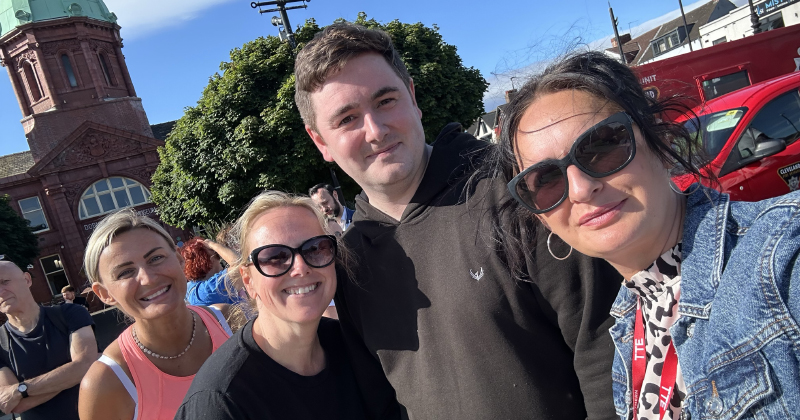
with Mayor Chris Cooke taking part in the riot clean up
Opportunities for debate
At Nelson and Colne College Group, an extended project qualification is used as a “vehicle for creating arenas for debate”, said principal Lisa O’Loughlin.
“Human libraries” are held in which people from different backgrounds and perspectives are invited in and asked questions by young people.
O’Loughlin believes colleges have a “real responsibility to support and challenge young people to understand that things aren’t just binary answers to every conversation”.
“The more that we can expose them to those opportunities for debate, the more we can offset the social media block-facts mentality and develop the oracy skills they need to go into the world”.
At BMet, Burton-Williams has had to hold difficult conversations with students urging the college to adapt the ‘quiet reflection space’ used by Muslim students as a prayer room into two separate rooms for males and females.
She explains to them that “there are particular concerns if you start segregating” which is “not our place” as “we’re not a place of worship”. “People make judgments, ‘OK, you’re a middle-aged white woman. What are you going to know about that?’.
“The more that FE professionals have that confidence to talk about [these issues], the better, not just people who work in EDI. But for some, the thought of that conversation terrifies them because they think, ‘what if I get it wrong?’”

Hidden from view on social media
Cantle believes the “social bubbles” that form in schools and local communities are “compounded by the bubbles that surround us on social media”, which is making it “more difficult” for colleges to “break down some of these groupthink, insular ideas”.
Steve Wright, a youth engagement specialist working with colleges, was horrified last summer when his own daughter was exposed to messages on Snapchat encouraging young people to attend a local riot, which was foiled by police before it could take place.
He fears the nature of closed social media groups makes it “much more difficult” for colleges to know what messages young people are being exposed to.
Some divisive social media content is flagged by college internet safety firewalls; a June 2024 meeting of the West Nottinghamshire College standards committee reported that so far that academic year, its Smoothwall firewall had flagged 434 concerns, “largely low-level and behavioural”; however, “once or twice a month something is found which raises a significant safeguarding concern”.
But Gordon believes that colleges “have to be realistic about our limits”.
“Staff have only a few hours each week to connect with learners, build trust, and equip them with life skills. Meanwhile, divisive voices often from high-profile political figures or online influencers have 24/7 access,” she says.
“As educators, we can offer structure and support. But we can’t monitor their algorithm. We can’t undo a viral TikTok. And by the time a concern reaches us, the damage may already be done.”
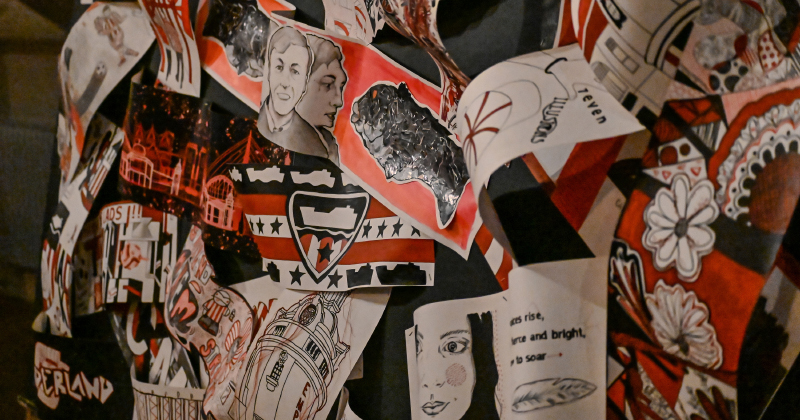
Legal minefield
Sometimes, tutors are put off from engaging in debate for fear of inadvertently offending a particular group or inciting hate.
The Higher Education Freedom of Speech Act places stronger responsibility on registered higher education institutions to uphold freedom of speech principles.
The University of Sussex was the first to be fined (£586,000) under new powers given to the Office for Students after its governing documents were found to have not upheld freedom of speech and academic freedom.
Arif Ahmed, OfS director for freedom of speech, told the BBC that exposure to views which students might find offensive was “part of the process of education”, warning there was “potential for higher fines in the future”.
But colleges are operating in a legal minefield, amid concerns they could also be sued for being seen to incite inflammatory speech.
A lawyer with FE and HE clients said there is “a lot of money around for litigation” from “actors outside this country and very wealthy people within this country”.
They added that “grey areas” arise when there are “competing discriminations”, such as “a very extreme religious view butting up against LGBTQ rights in particular”.
“Employment lawyers get very excited, because there’s no right or wrong answer to that – it’s just what the judge feels that he or she needs to do on the day.
“This makes our friends in the sector very, very nervous, they’re looking over their shoulder constantly, worrying about whether they’re about to be sued”.

A maths teacher fired by New College Swindon for refusing to use the name and pronouns of a trans student has been granted an appeal against a tribunal decision that ruled he was not unfairly dismissed, which is set to be heard in November. The college argued it dismissed Kevin Lister, who has crowd-funded over £36,000 so far towards his legal costs, for the way he manifested his gender-critical views, not for holding those views.
It’s a tightrope every college has to walk with in the absence of good guidance from the government; protecting students and staff with rights not to be discriminated against under the Equality Act against the freedom of speech and equalities rights of those “expressing beliefs”.
One college manager, whose college had been subject to a campaign by some students against a Harry Potter-themed trip because they disagreed with JK Rowling’s views on gender, said, “Some of the trans narrative over the last 18 months has been really challenging in lots of ways”.
But Cantle believes that although colleges “don’t want to see offensive attitudes expressed” on their campuses, “being offensive is not against the law, and unless you’re prepared to have serious debates, then how do people ever come to terms with difference?”
Humphries pointed out that not only do FE staff now require the skills to be able to “facilitate discussions and confront divisive behaviour”; they also need to “overcome pressures from Ofsted and adhere to Prevent legislation, without funding to upskill our staff to meet these challenges”.


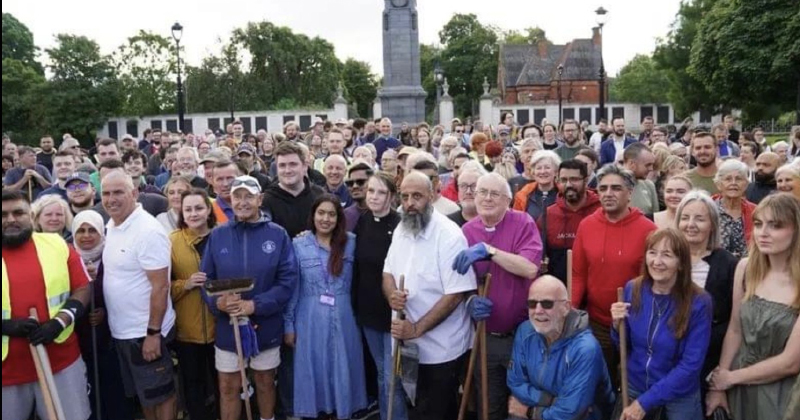













Your thoughts